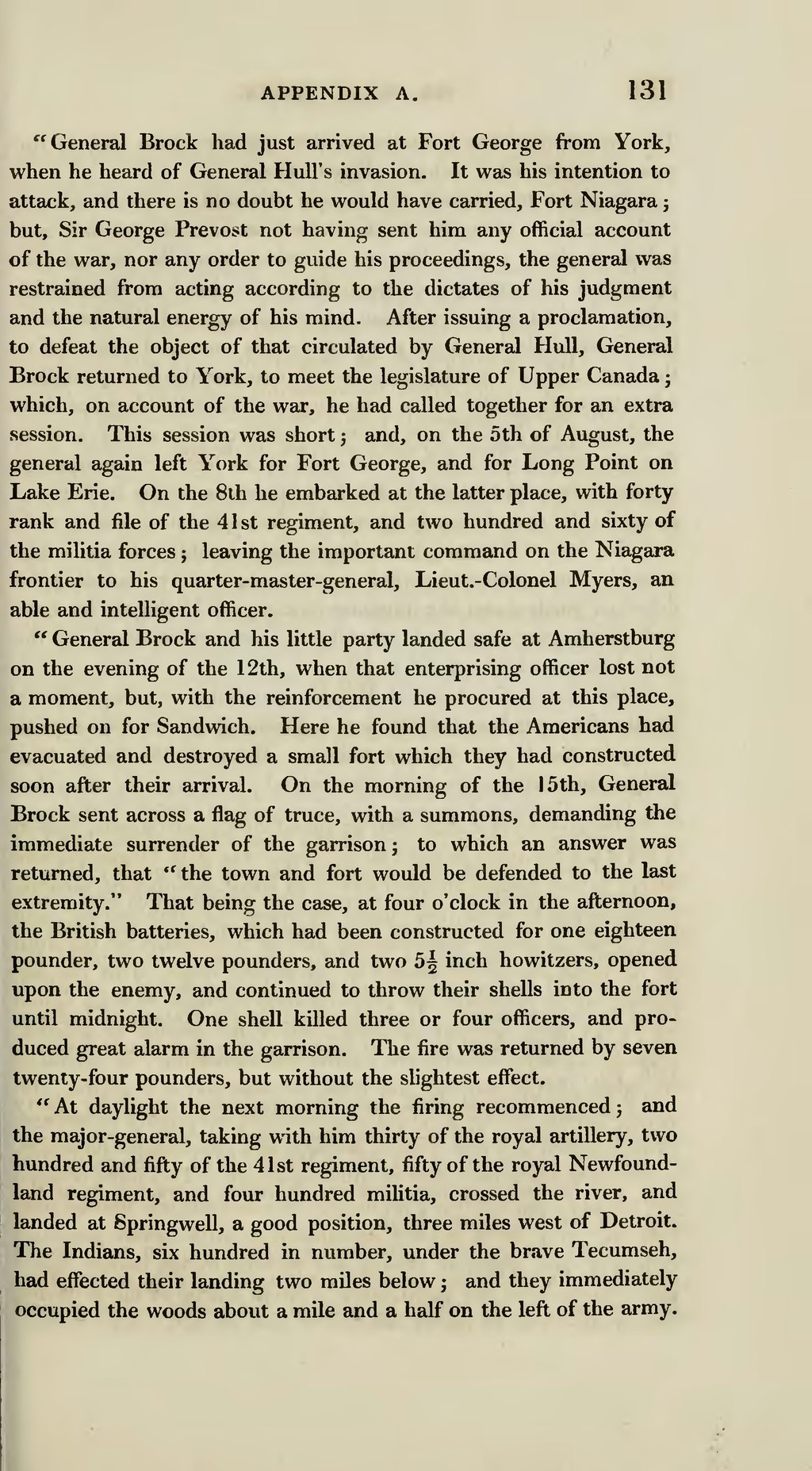" General Brock had just arrived at Fort George from York, when he heard of General Hull's invasion. It was his intention to attack, and there is no doubt he would have carried, Fort Niagara ; but, Sir George Prevost not having sent him any official account of the war, nor any order to guide his proceedings, the general was restrained from acting according to the dictates of his judgment and the natural energy of his mind. After issuing a proclamation, to defeat the object of that circulated by General Hull, General Brock returned to York, to meet the legislature of Upper Canada ; which, on account of the war, he had called together for an extra session. This session was short ; and, on the 5th of August, the general again left York for Fort George, and for Long Point on Lake Erie. On the 8th he embarked at the latter place, with forty rank and file of the 41st regiment, and two hundred and sixty of the militia forces ; leaving the important command on the Niagara frontier to his quarter-master-general, Lieut.-Colonel Myers, an able and intelligent officer.
" General Brock and his little party landed safe at Amherstburg on the evening of the 12th, when that enterprising officer lost not a moment, but, with the reinforcement he procured at this place, pushed on for Sandwich. Here he found that the Americans had evacuated and destroyed a small fort which they had constructed soon after their arrival. On the morning of the 15th, General Brock sent across a flag of truce, with a summons, demanding the immediate surrender of the garrison ; to which an answer was returned, that " the town and fort would be defended to the last extremity." That being the case, at four o'clock in the afternoon, the British batteries, which had been constructed for one eighteen pounder, two twelve pounders, and two 5^ inch howitzers, opened upon the enemy, and continued to throw their shells into the fort until midnight. One shell killed three or four officers, and pro- duced great alarm in the garrison. The fire was returned by seven twenty-four pounders, but without the slightest effect.
"At daylight the next morning the firing recommenced ; and the major-general, taking with him thirty of the royal artillery, two hundred and fifty of the 41st regiment, fifty of the royal Newfound- land regiment, and four hundred militia, crossed the river, and landed at Springwell, a good position, three miles west of Detroit. The Indians, six hundred in number, under the brave Tecumseh, had effected their landing two miles below ; and they immediately occupied the woods about a mile and a half on the left of the army.
�� �
